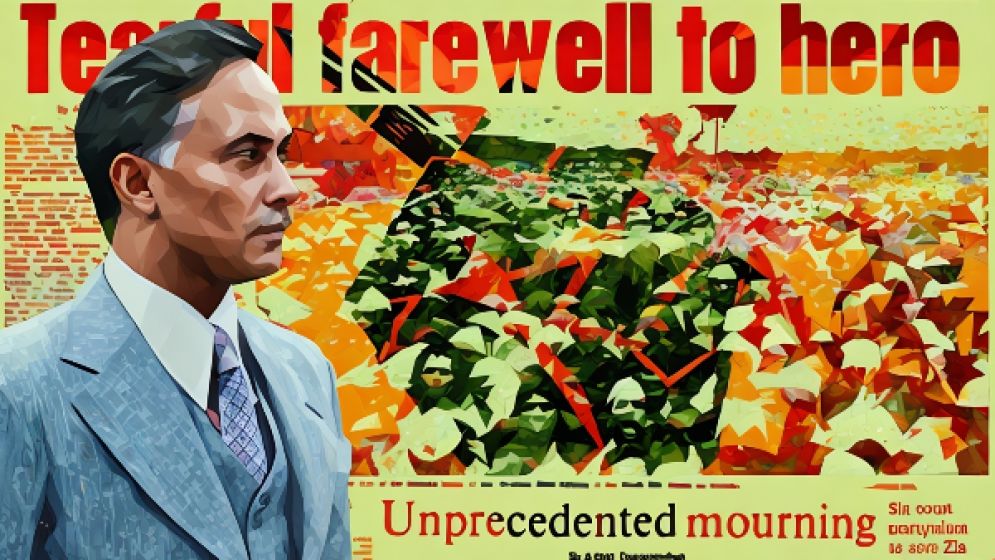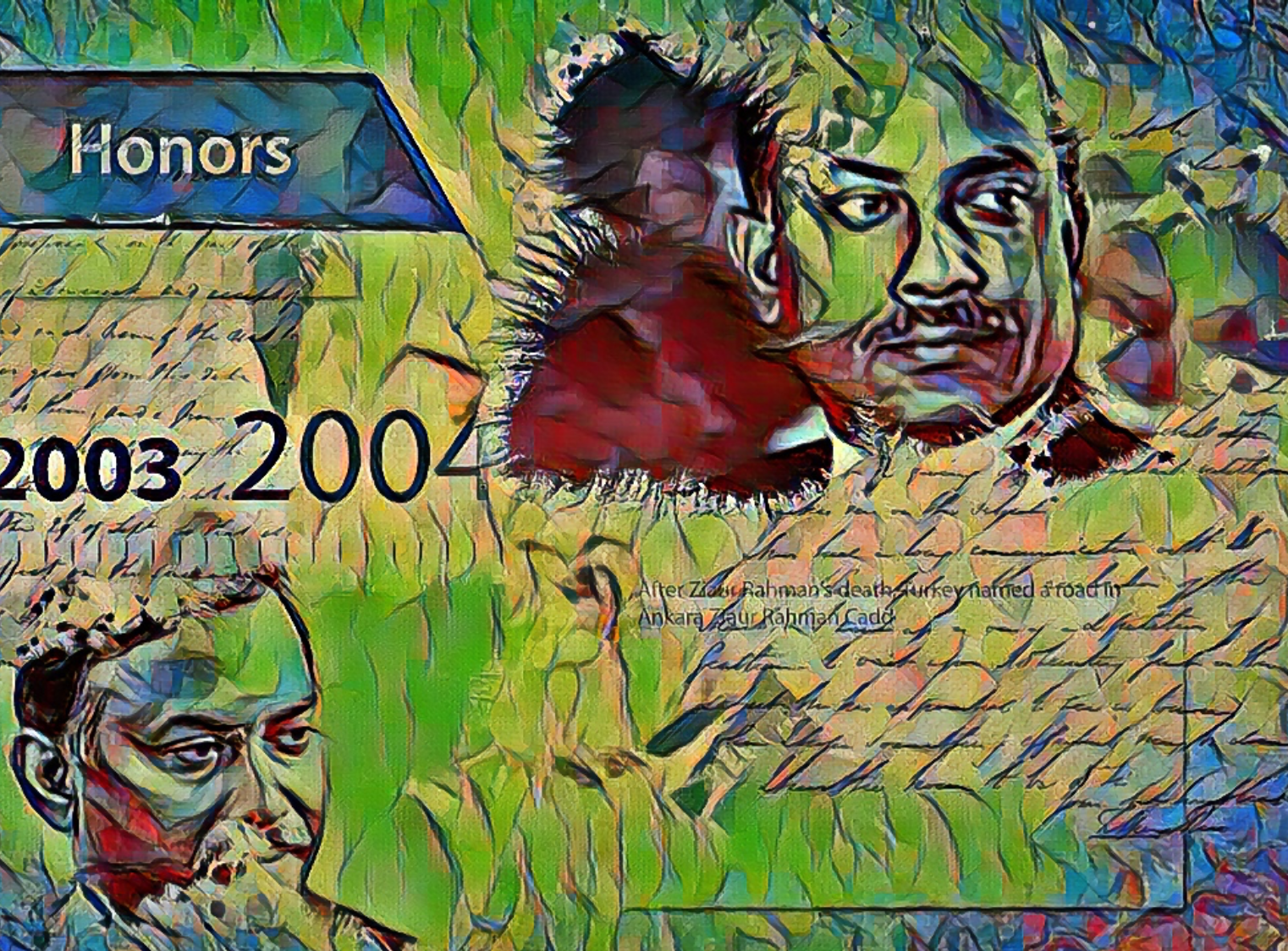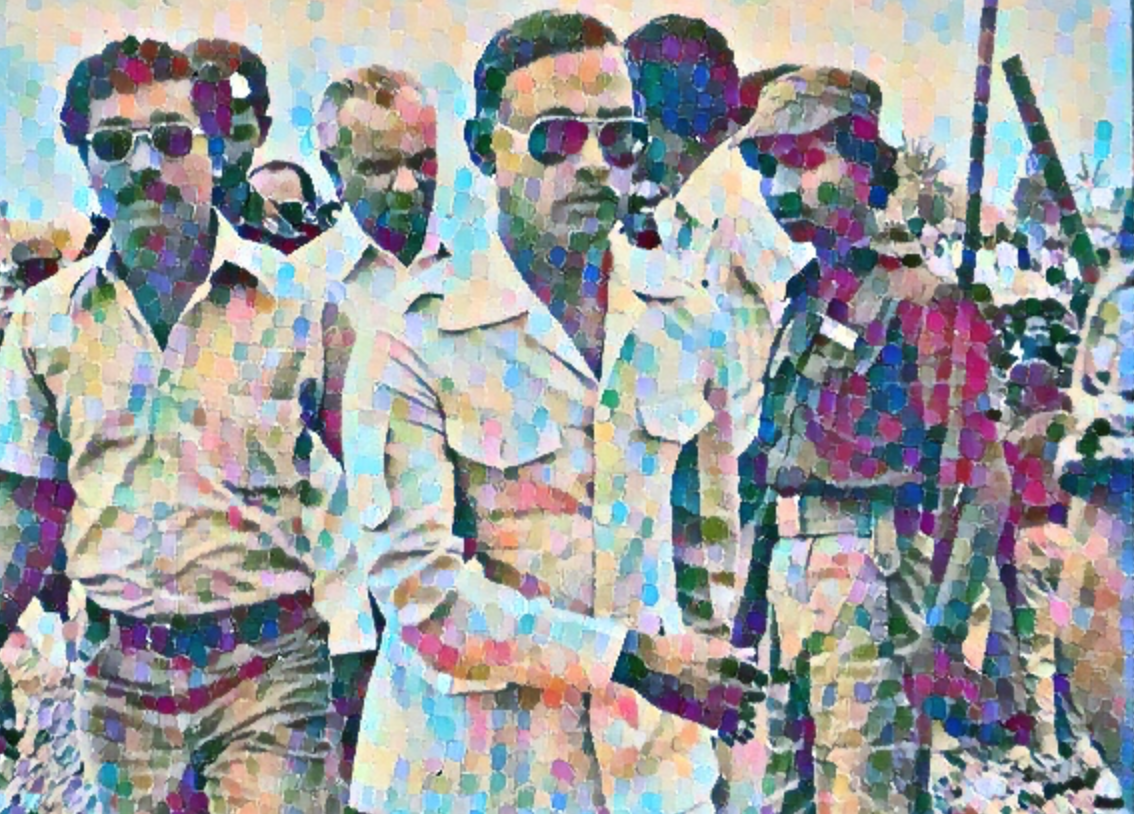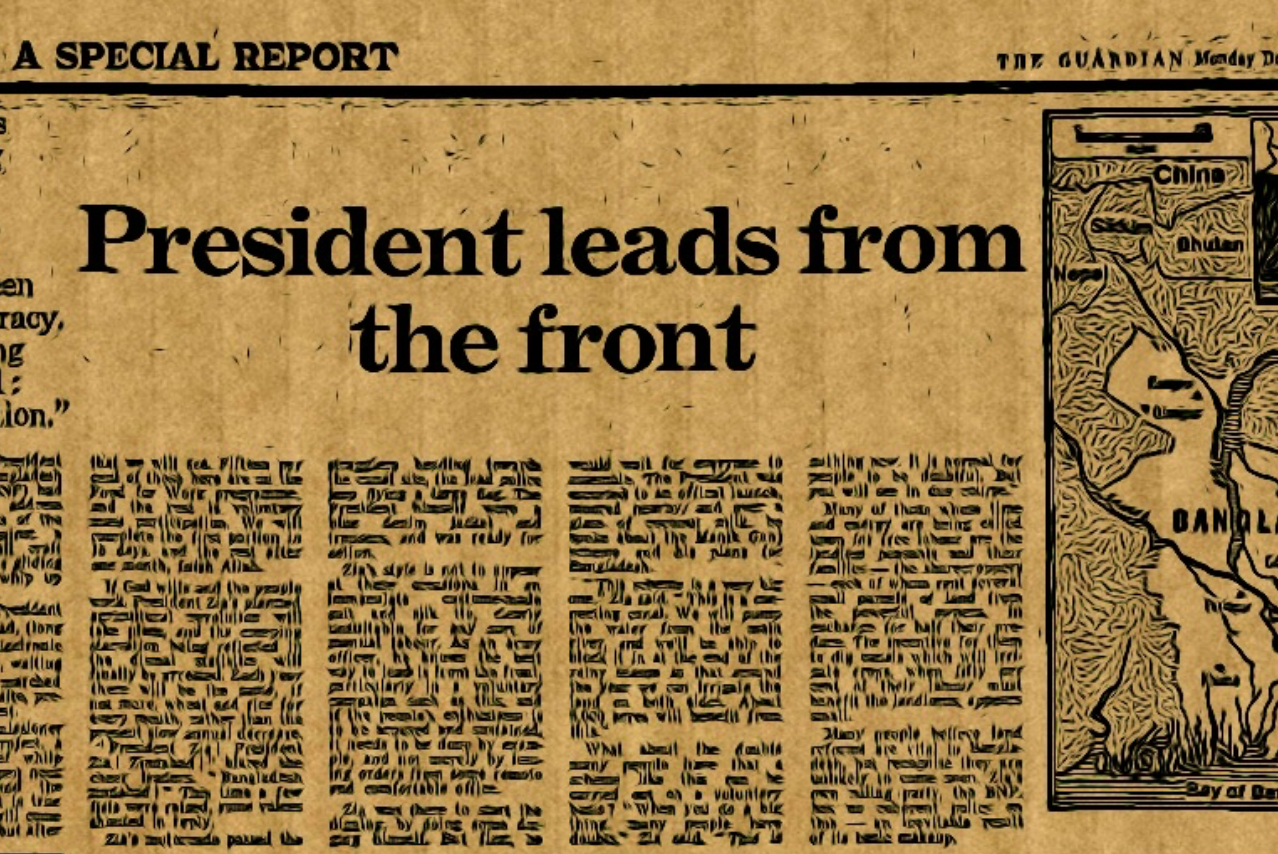President Zia's Legacy: How much do we remember of his championing of the Bangladesh press?
Moinuddin Kaderi Shawkat
Publish: 20 Oct 2024, 03:24 PM

When discussing the role of newspapers in relation to the legacy of President Ziaur Rahman, it's important to establish a clear understanding of what constitutes a newspaper and who qualifies as a journalist.
According to Bangladeshi law, specifically the Press Council Act of 1974 and the Printing Press and Publications Act of 1973, a newspaper is defined as a periodical publication that disseminates news and opinions on matters of public interest.
The Post Office Act of 1898 further clarifies this definition for registration purposes, stating that a newspaper must contain political or other articles, descriptions of current events, and advertisements, and be published at least once every 31 days with a verifiable subscriber base.
Journalists, those who contribute to these publications, meanwhile encompass a wide range of roles, including editors, reporters, writers, photographers, and cartoonists, as defined by law.
It's crucial to note that these legal definitions do not differentiate between daily, weekly, or monthly publications. Therefore, journalists working for any periodical that meets the criteria of a newspaper are considered legitimate members of the press, and their publications are recognized as valid sources of news and information.
Martyred President Ziaur Rahman, the valiant freedom fighter who declared Bangladesh's independence, was a staunch advocate for press freedom and a key figure in shaping the nation's media landscape.
He recognized the vital role of a free press in a democratic society and took significant steps to foster its growth.
Zia’s vision for Bangladesh extended beyond political independence. He championed Bangladeshi nationalism, promoting a sense of unity and self-reliance. He introduced multi-party democracy, paving the way for a more inclusive political system.
And he actively supported the development of a vibrant and independent press, understanding its importance in holding power accountable and informing the public.

Why did President Zia champion the
press?
President Ziaur Rahman was a trailblazer for multi-party democracy in Bangladesh and a fervent advocate for press freedom. He recognized that these two pillars are vital for a healthy and dynamic society.
His leadership reversed the repressive policies of the previous regime, which had enforced a one-party system and suppressed the press.
In 1978, he announced the repeal of the restrictive ordinance that limited press freedoms, setting the stage for a flourishing media landscape in Bangladesh.
This courageous action ultimately contributed to the vibrant and diverse press we see today, with thousands of newspapers circulating across the country.
His genuine dedication to improving journalism standards was reflected in numerous initiatives designed to support and empower journalists.
Understanding the significance of professional development, President Zia established the first salary board for journalists in Bangladesh, ensuring fair compensation and better working conditions.
He also founded the Bangladesh Press Institute, a pioneering institution focused on enhancing journalists' skills and knowledge. Additionally, he revitalized the Press Council, a crucial entity tasked with safeguarding the rights of both journalists and the public.
Zia believed that journalists, as citizens of a free nation, should have every opportunity to reach their full potential. He encouraged them to excel in their work and contribute to the growth of a strong and informed society.
The thousands of journalists trained at the Bangladesh Press Institute serve as a testament to his lasting legacy.
President Zia also championed the development of ethical guidelines for journalists, recognizing the significant impact of their work on society. He maintained that journalists, like doctors, lawyers, and soldiers, should follow a strict code of conduct to ensure accountability and responsible reporting.
During the foundation stone-laying ceremony for the National Press Club on February 17, 1979, President Zia expressed his vision for the press: "In countries where newspapers and media enjoy absolute freedom, they must also adhere to certain guidelines. Irresponsible journalism devoid of ethical principles brings only misfortune to the country and the nation."
He understood that a free press flourishes when it operates with integrity and responsibility.

Walking the talk
President Zia matched his words with actions. He oversaw a dramatic expansion of the media landscape, with numerous new publications emerging after the oppressive one-party BAKSAL era.
He even initiated the publication of the daily "Barta" from Rajshahi to provide opportunities for journalists displaced during the BAKSAL period and ensure the free flow of information in the northern region.
Beyond policy, President Zia cultivated a personal connection with journalists. He was an avid reader of newspapers, readily praising good work and offering constructive criticism with humility.
He valued their insights and engaged in thoughtful discussions on important issues, demonstrating his deep respect for the profession.
President Zia’s engagement with the press went beyond mere policy and pronouncements. He displayed a genuine interest in the work of journalists, taking the time to understand their challenges, responsibilities, and aspirations. Such personal involvement from a head of state is truly remarkable.
Ziaur Rahman envisioned a future where Bangladeshi journalists could stand shoulder to shoulder with their counterparts in advanced countries, armed with professionalism and integrity.
He took immense pride in the nation's independence and believed that its journalists should reflect that same spirit of self-reliance.
When it came to supporting the press, he insisted on using Bangladesh's own resources, famously declaring that the National Press Club would be built with government funds, not foreign aid.
This commitment to self-reliance was evident in his support for press clubs across the country. The multi-story National Press Club in Dhaka stands as a testament to his vision, built entirely with Bangladeshi resources.
He also extended financial support to the Chittagong Press Club, a legacy continued by Begum Khaleda Zia, who, during her last tenure as Prime Minister, donated 1.5 million Taka for its development.
President Zia also actively involved journalists in his initiatives, taking them along on state visits abroad and to witness development projects firsthand.
He sought their perspectives and valued their role in informing the public. In a memorable instance, while showcasing a canal-digging project in his adopted village of Nabogram, he invited an editor to address a public gathering, even encouraging him to voice any criticism he might have.
This openness to criticism was a hallmark of Ziaur Rahman's leadership. He famously urged journalists to "criticize me so that I can learn something."

Acceptance and tolerance for
well-grounded critique
During a meeting with editors at Bangabhaban, when a prominent editor called on President Zia to address rising commodity prices, he responded with respect and a sincere interest in understanding the issue. He engaged in meaningful dialogue, seeking concrete solutions and demonstrating his commitment to learning and improvement.
President Zia consistently stressed the importance of objective and well-founded critique. He encouraged journalists to "write based on observation; analyze the issues in depth," urging them to explore topics thoroughly and provide insightful analysis.
His speeches frequently focused on national sovereignty, economic self-reliance, and the need for increased production.
He acknowledged the crucial role of the press in communicating these messages to the public, stating, "As the head of state, it is my responsibility to inform the people about threats to our sovereignty and the necessity for increased production. I will be pleased if even a small part of my speech reaches the public."
President Zia's lasting legacy is reflected in the institutions he established and the support he extended to the journalistic community.
The Bangladesh Press Institute, the National Press Club, the Press Council, the Wage Board, and the allocation of land for journalists in Dhaka and Chittagong serve as testaments to his unwavering dedication to elevating journalism standards and ensuring the welfare of journalists.
His contributions to the press in Bangladesh are undeniable. He cultivated an environment where freedom of expression thrived, while also emphasizing the significance of responsible and ethical journalism.
His vision and actions have made a lasting impact on the media landscape, securing his place as a revered figure among journalists and a steadfast champion of press freedom in Bangladesh.
—
The writer is the convener of the Eastern Newspaper Council and the editor of the Ijtihad newspaper in Chittagong.
(Translated from Bangla by Faisal Mahmud)
